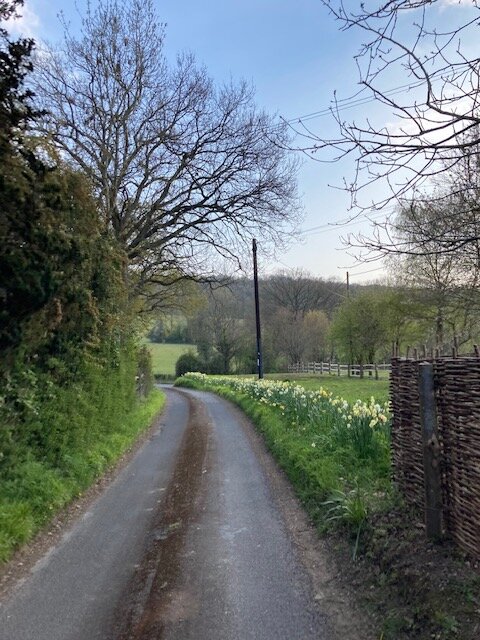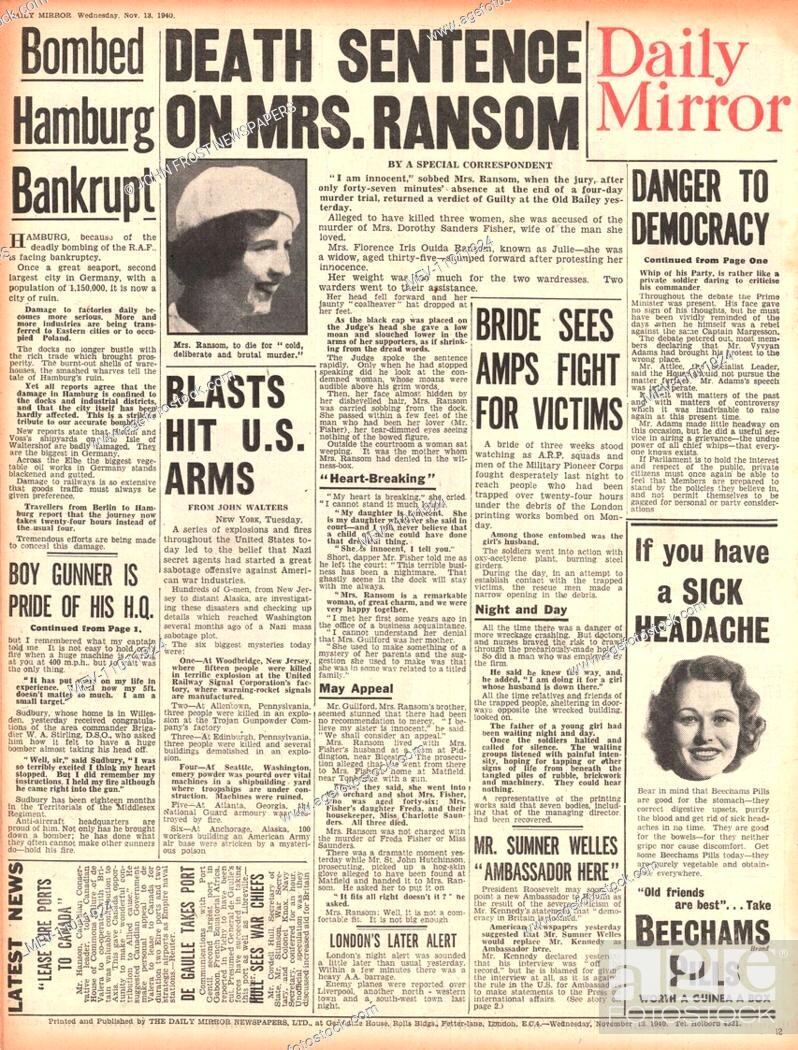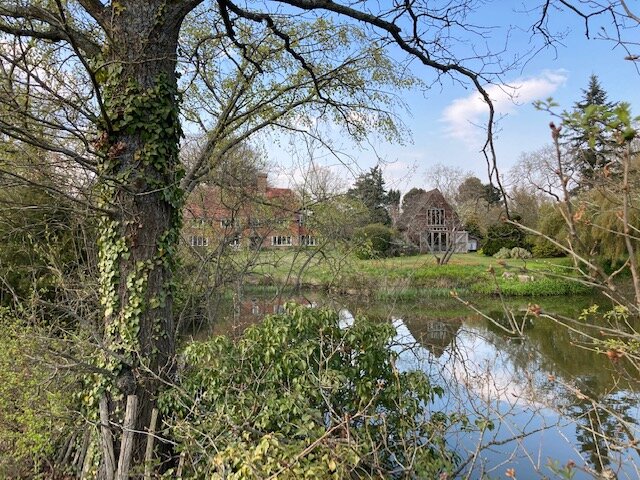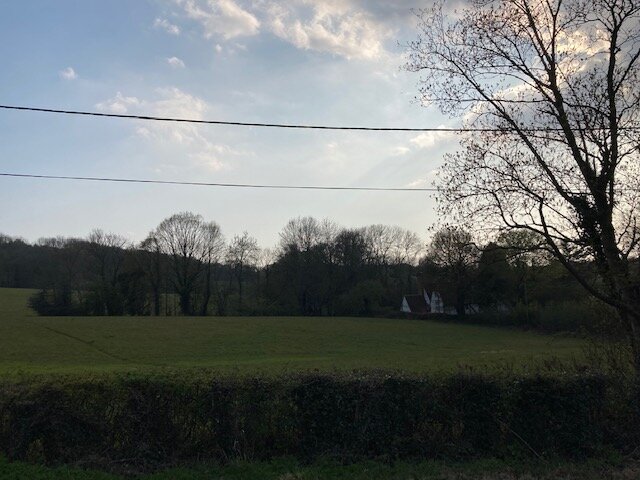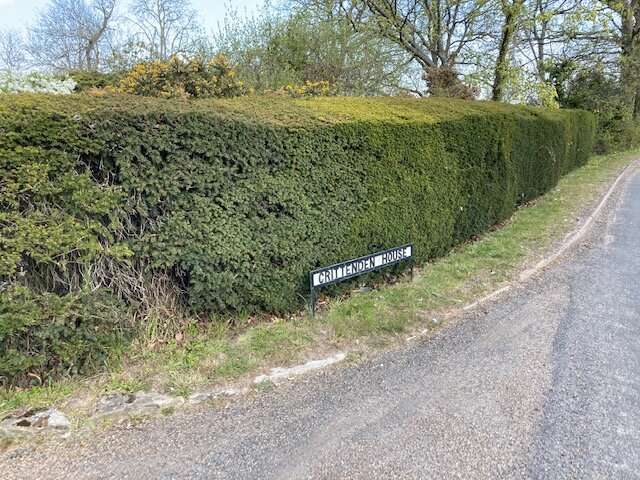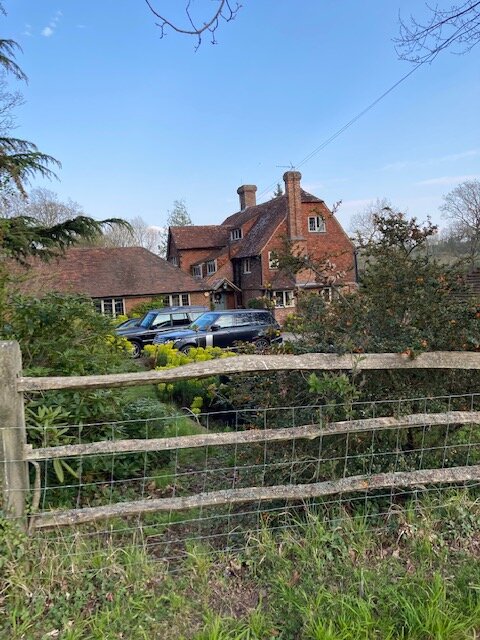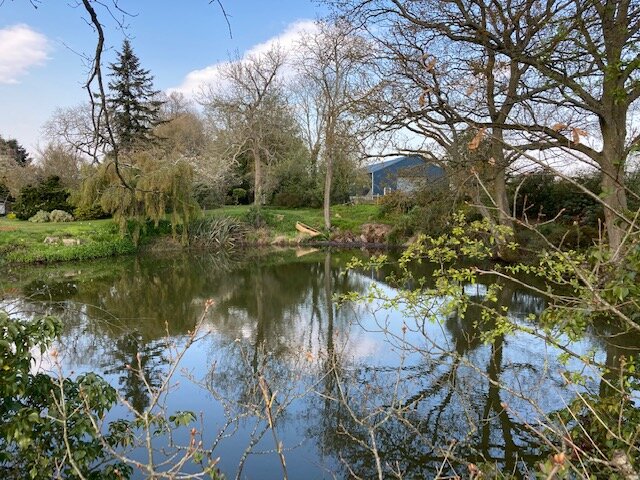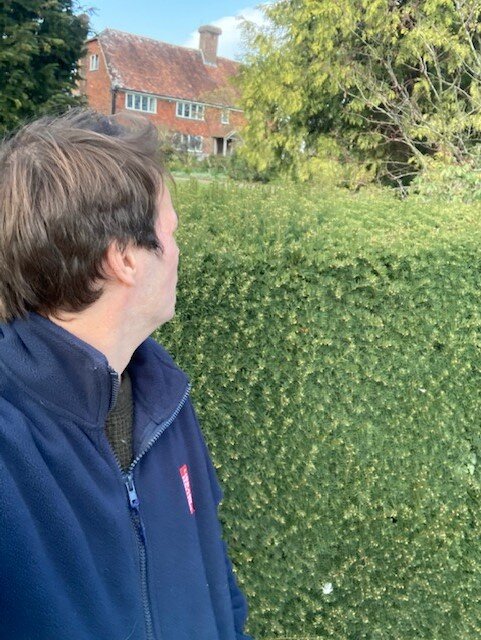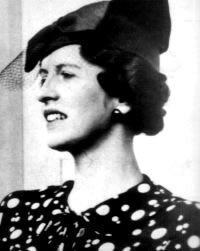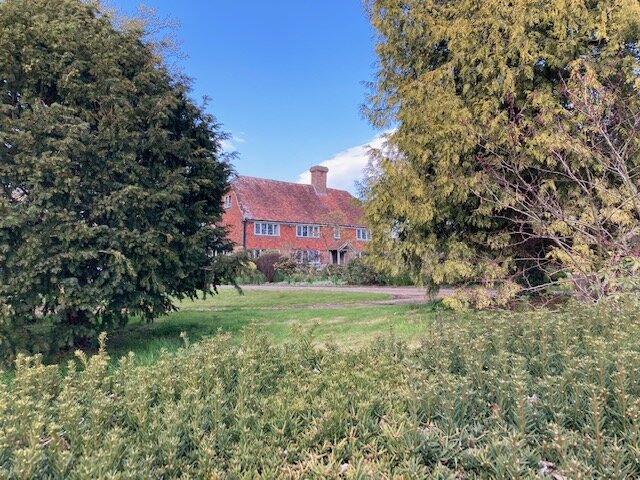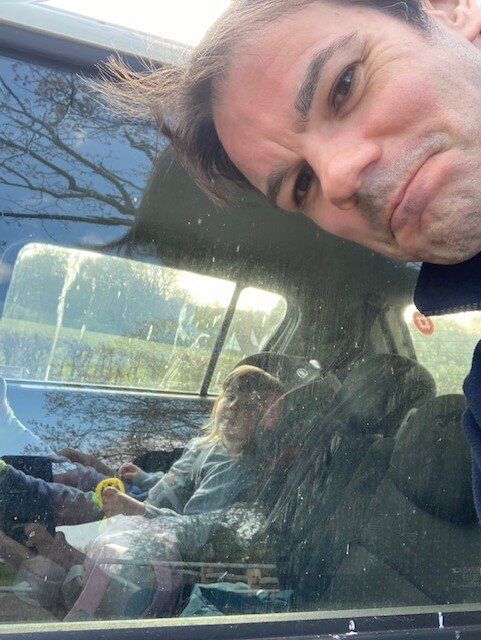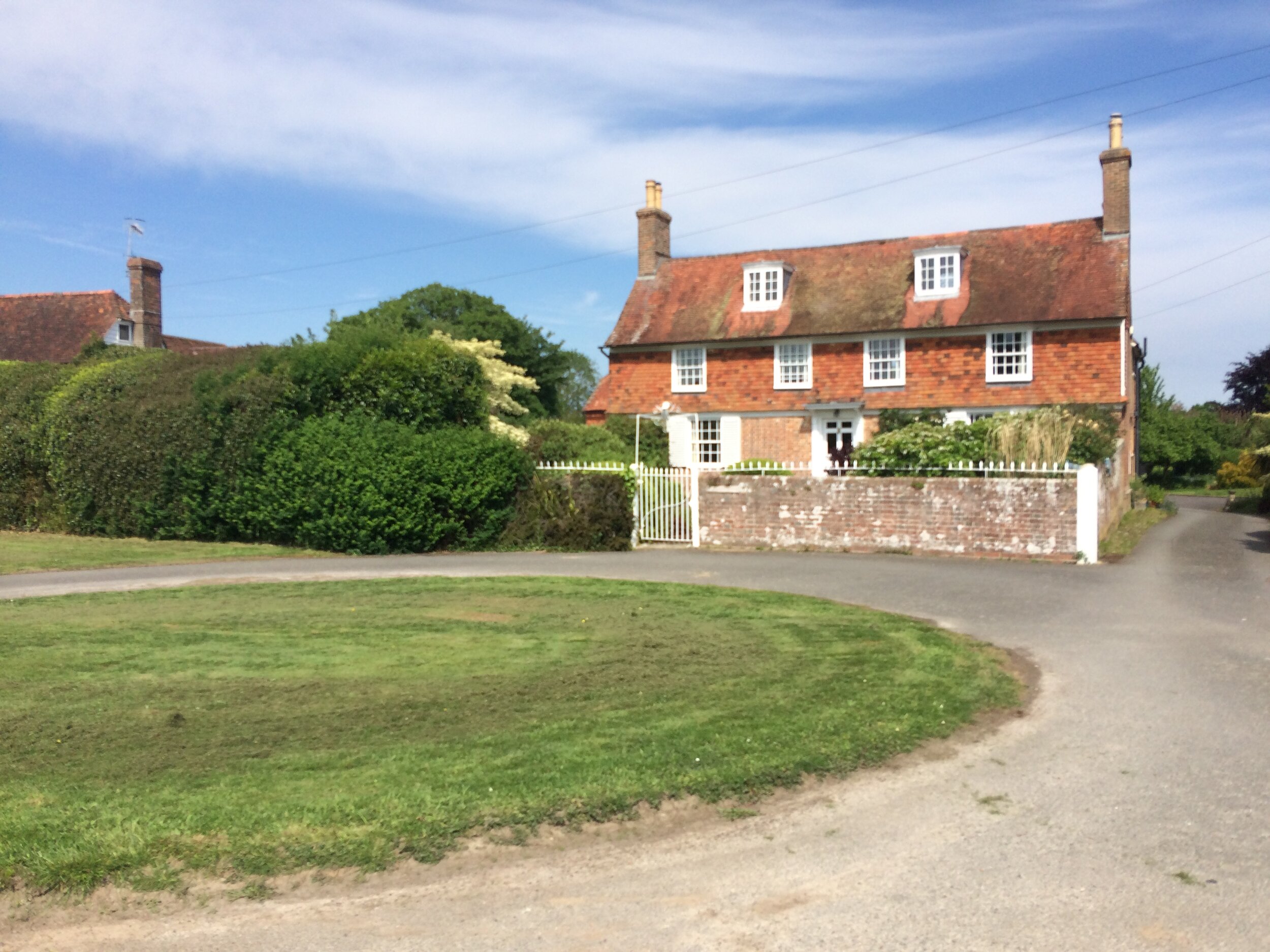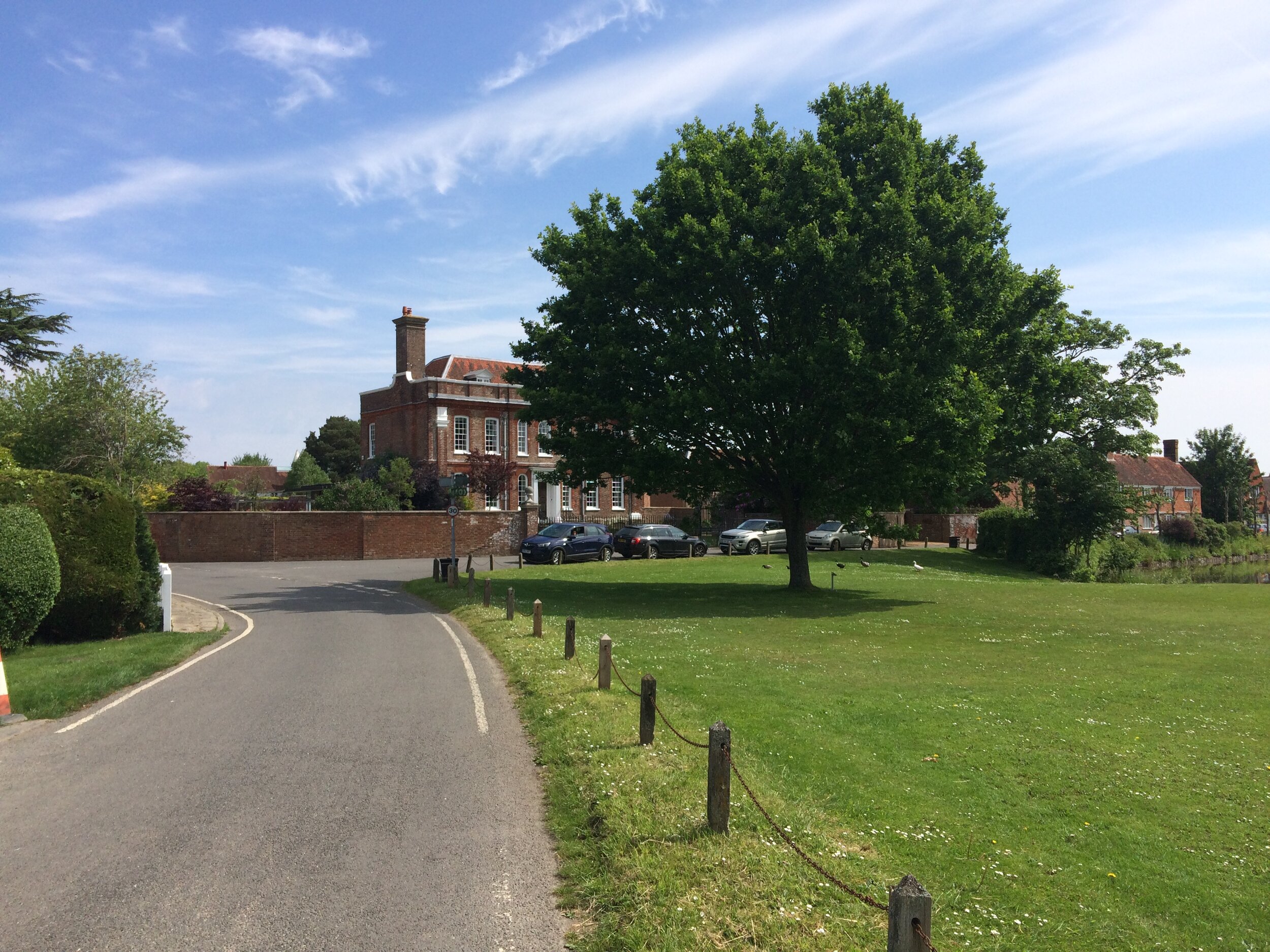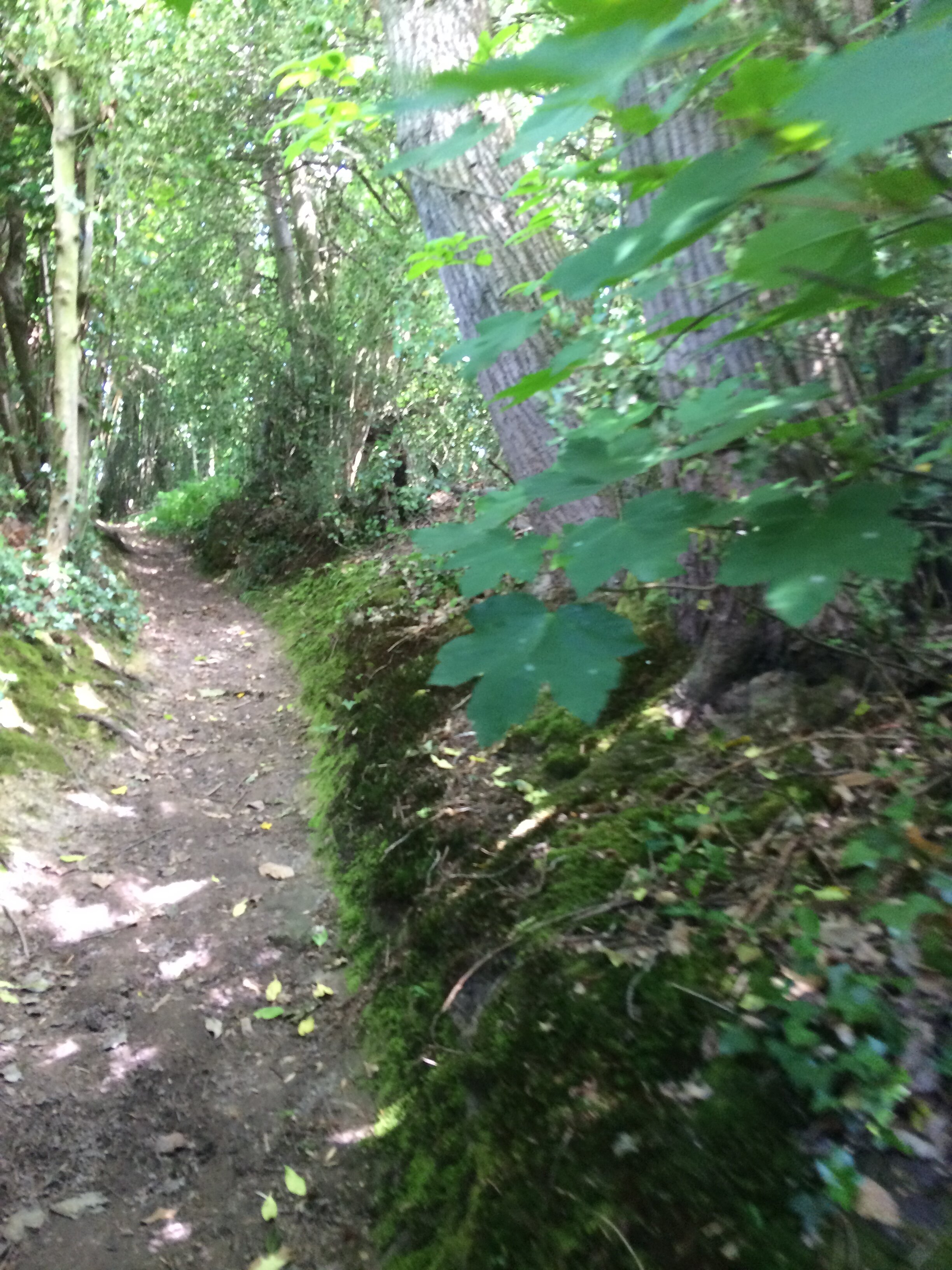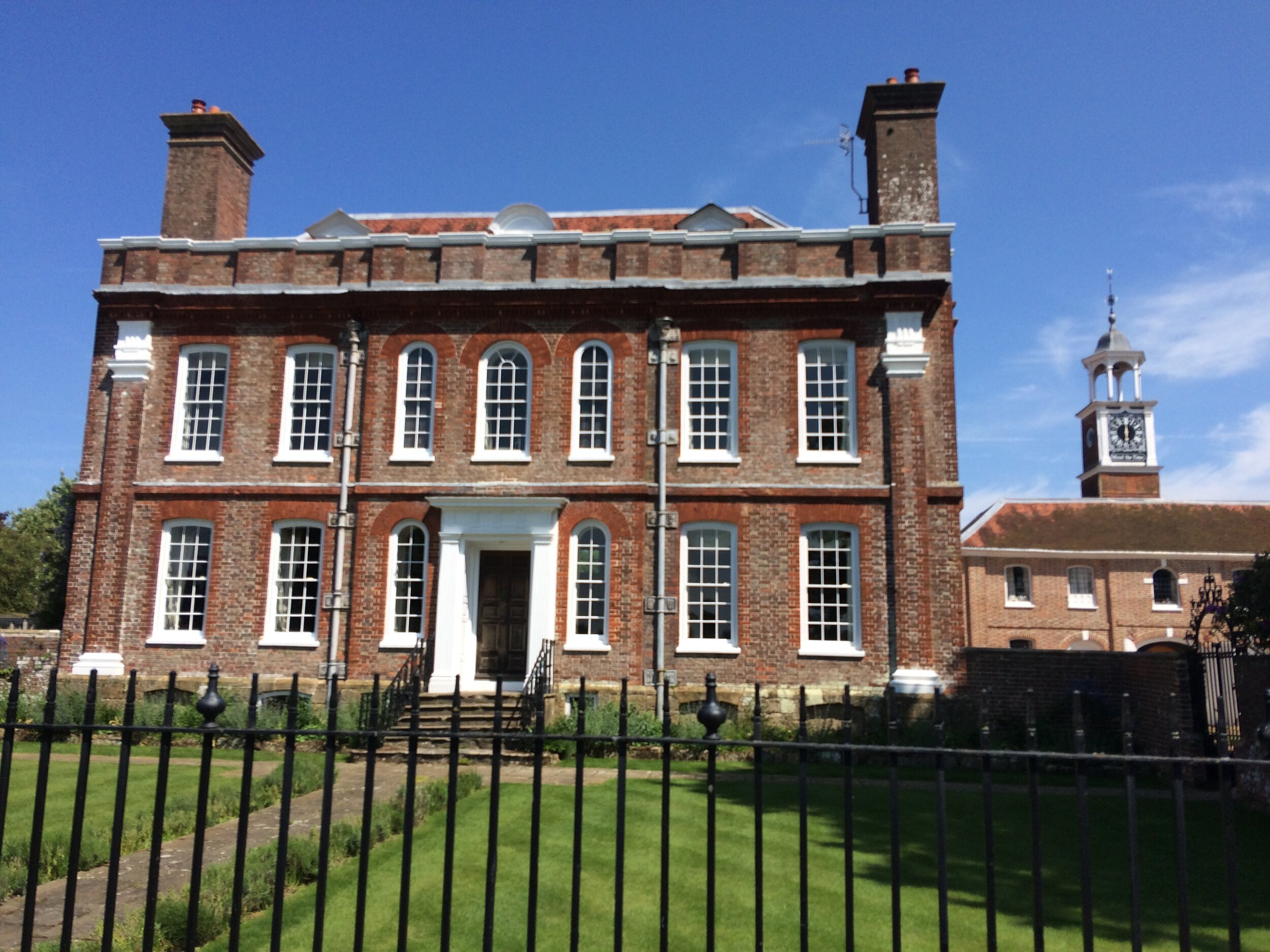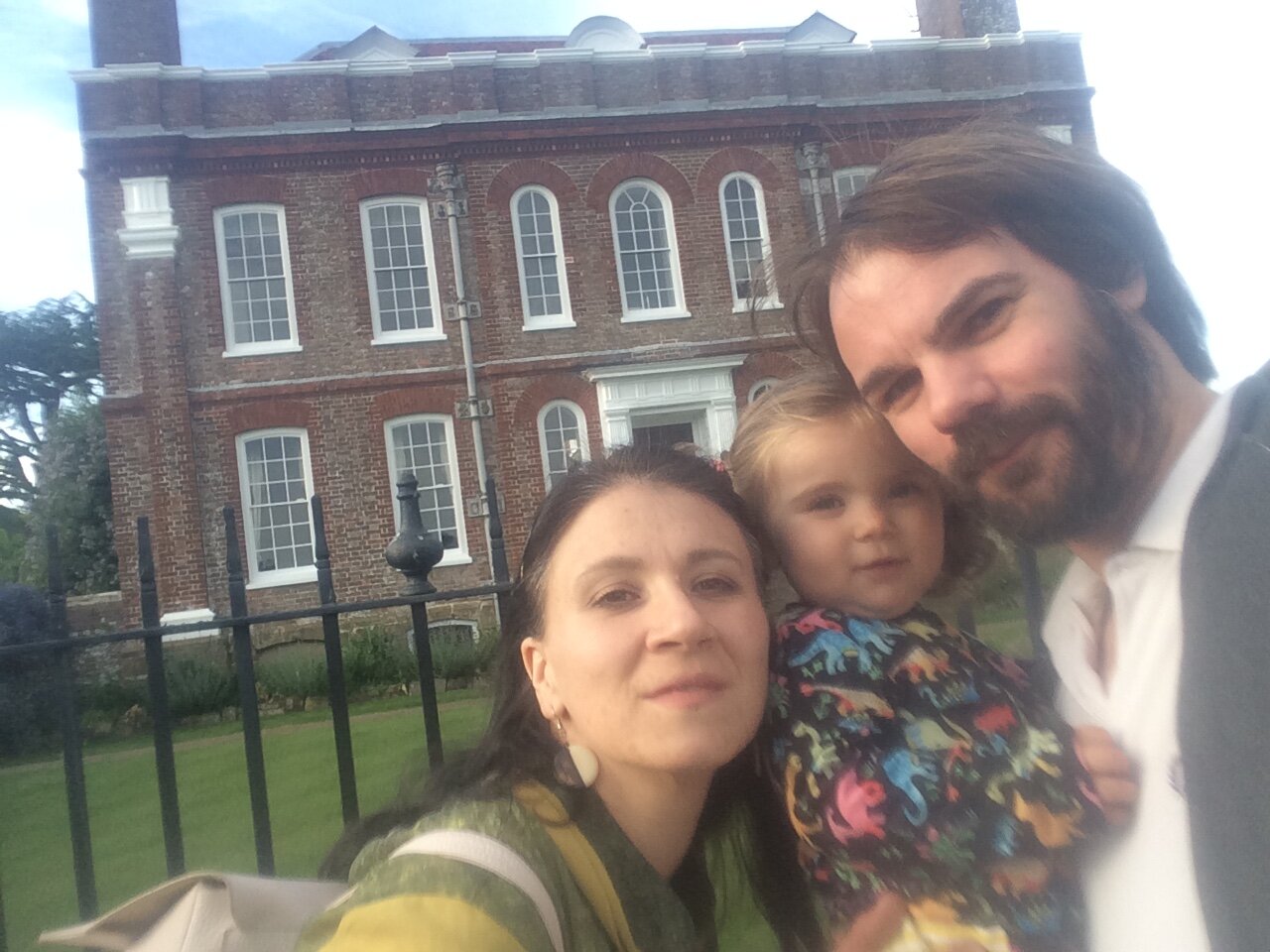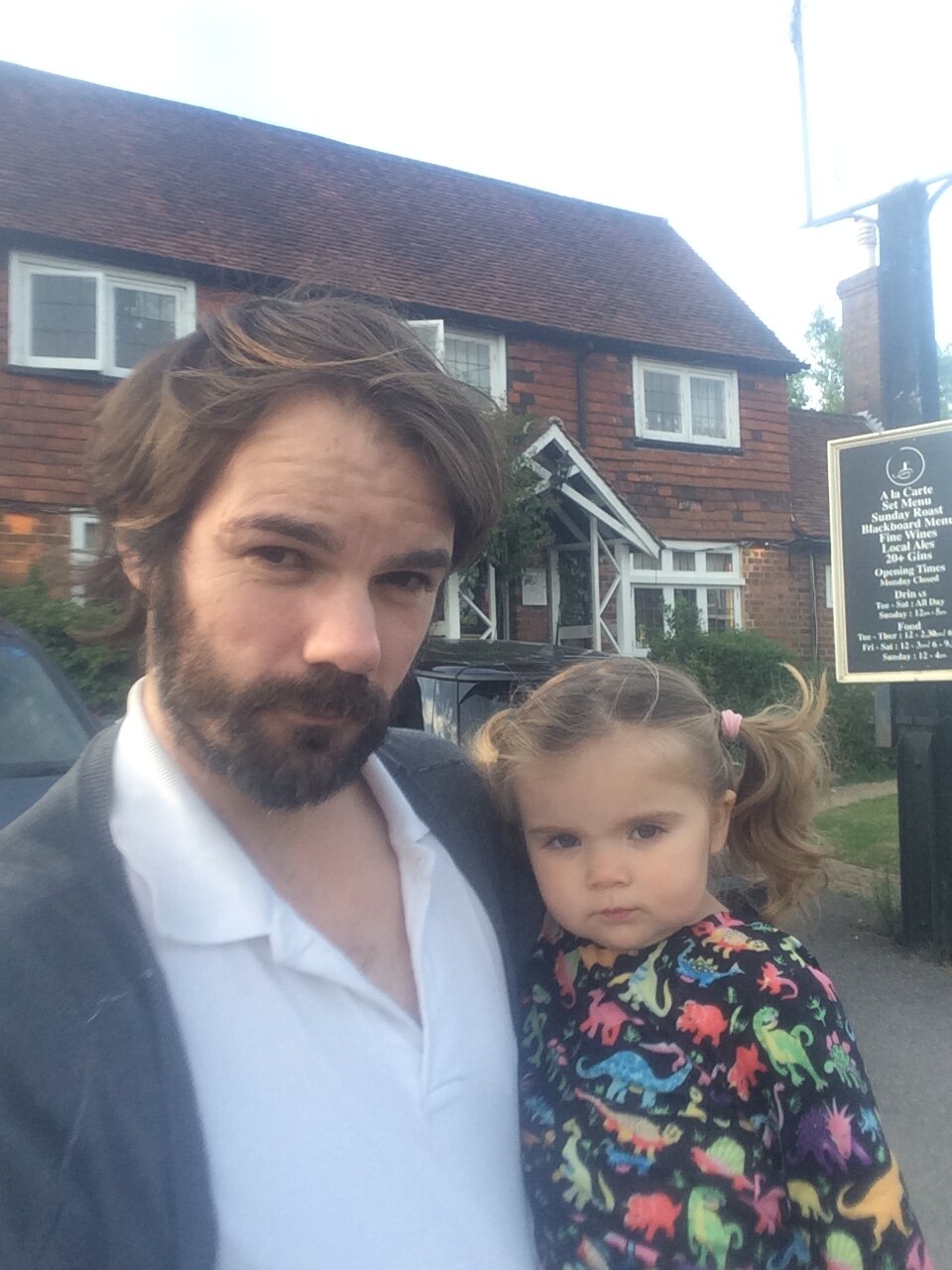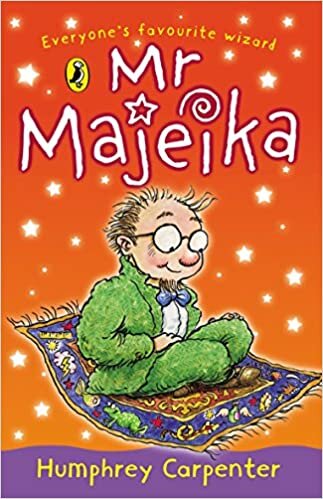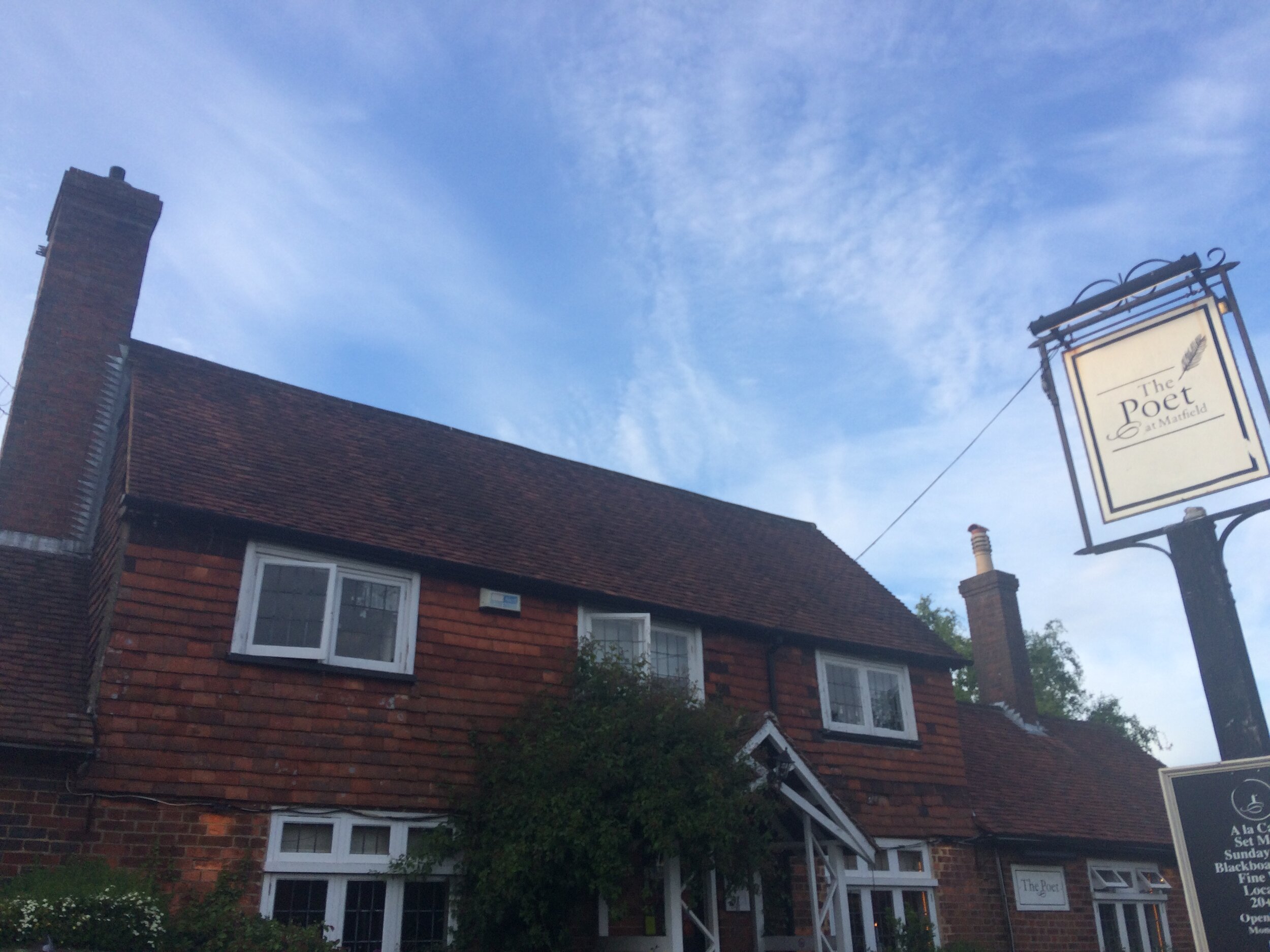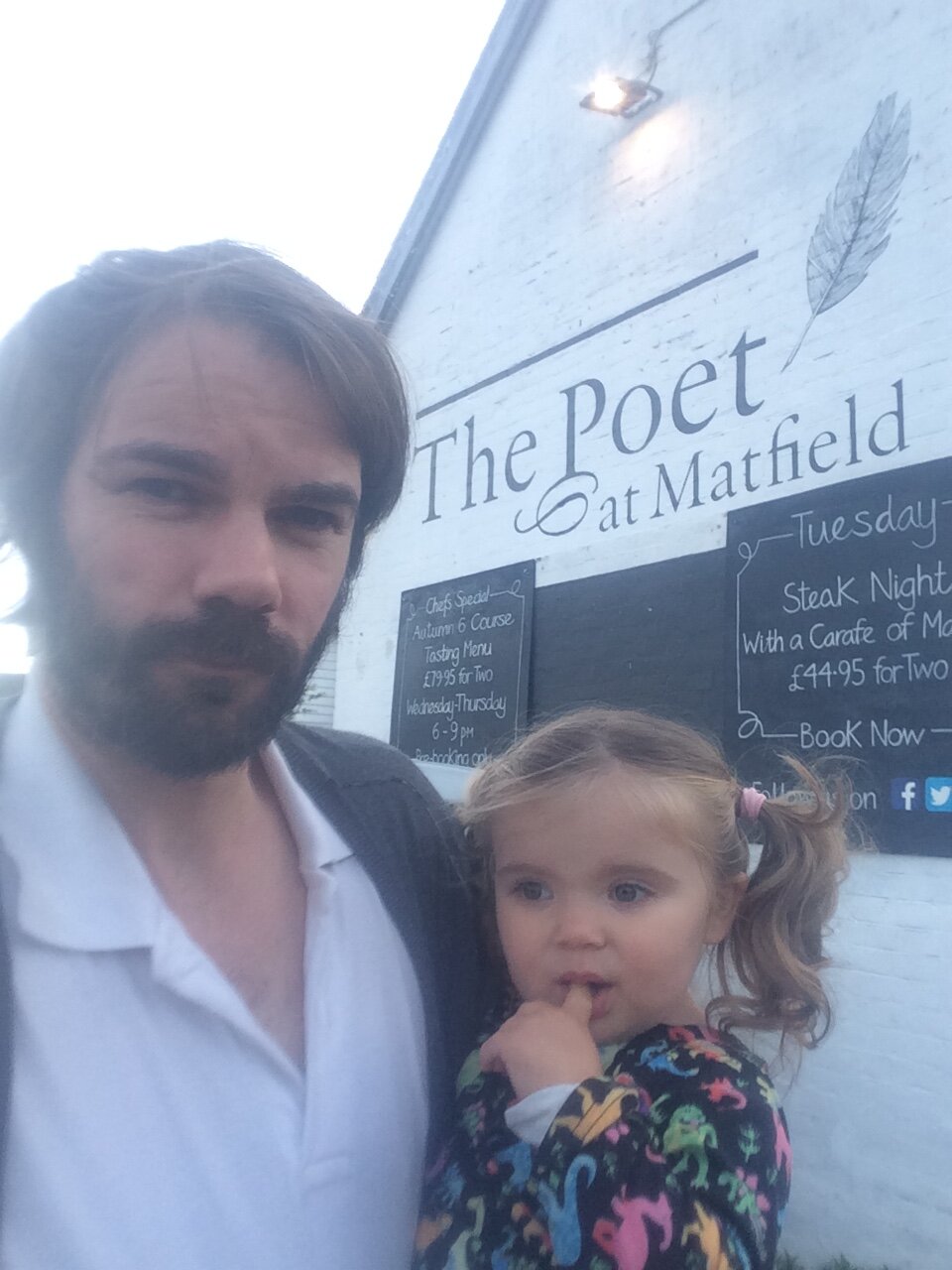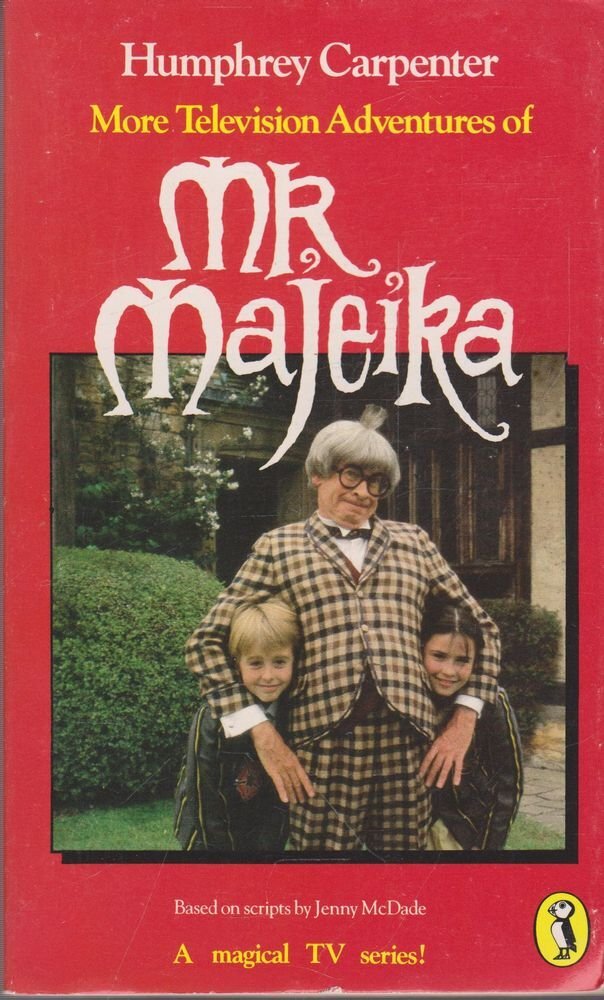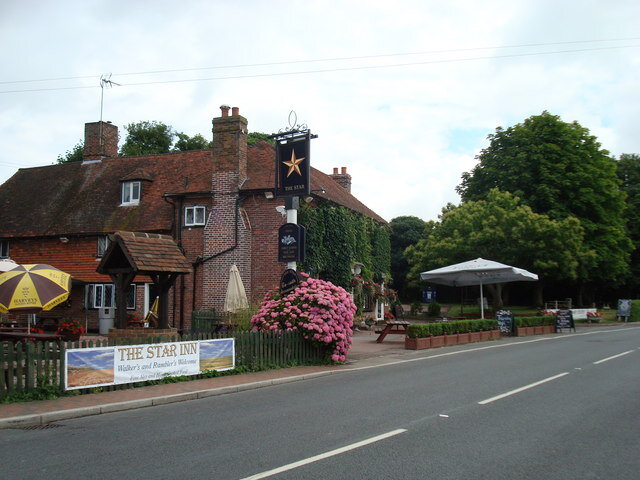Today, we were on the hunt for a cold-blooded killer. Sometimes, the dark murderous stain of a brutal history seeps through time and leaves a subliminal trace in the very atmosphere of its setting. If that was true of this particular legend, we expected a cold, dark, and unhappy place indeed.
Our interest was first drawn to this complicated catastrophe thanks to the proximity of the tragic tale. It involved the sinister story of a triple murder, violently enacted at the nearby Criddenden Cottage on the 9th July 1940. The occupier of the cottage, one Mrs. Dorothy Fisher, was gunned down, allegedly by Mrs. Florence Ransom, a jealous lover of her estranged husband.
It is not often we explore the truly darker side of history. Audrey is not particularly interested in such things. She is not yet able to fathom the depths of which humans have the ability to descend, nor the fragility of the human mind, and we are in no rush to expose her to such miseries. I prefer that she continues to experience the beauty and good in humanity for as long as possible, for there is yet much that is good out there.
Despite such worries, the story in itself was intriguing. It involved a triple murder in a sleepy village, for reasons of jealousy and madness. We were too close to ignore the existence of such a tragedy, and history deserves to be examined in order that we might learn from it. So without burdening our little explorer with too many of the details, we packed up our things and made our way out for a brief investigation of the scene of the crime.
The understood facts of the case are as follows:
Florence Ransom, jealous of the close relationship between her lover and his former wife, was believed to have loaned a poachers gun from her brother, wrapped it in a brown paper bag, and tracked down Mrs. Fisher at her cottage near Matfield in Kent. Here the mystery deepens as there was evidence of a shared tea, apparent from the cottage crime scene. This suggested that the victims and the killer were on friendly terms before the awful attack occurred. The cottage had been ransacked after the event, though nothing was stolen. The judge stated that a very careful deception had been attempted, a plot to suggest a burglary had taken place and the deaths had resulted from this action.
At some point, Ransom had cold-bloodedly killed the unsuspecting Mrs. Fisher, shooting her at close range in the back. Ransom continued the brutal spree by gunning down Mrs. Fisher’s nineteen-year-old daughter, Freda, again with a shot to the back. Still unsatisfied, the killing continued as an innocent housemaid, Charlotte Saunders, had witnessed the scene and attempted to flee. She was pursued by Ransom and either cruelly beaten to death with the butt of the borrowed rifle, or “had her head half blown off”, depending on the report consulted.
Some reports indicated that the murder occurred outside, in the garden or the orchard, whilst others suggested it happened within the cottage itself. Some have questioned how Ransom, an absolutely inexperienced marksman, could have reloaded and easily shot dead three separate targets with such brutal efficiency.
Ransom seemingly fled the scene and her involvement was only discovered when a single white hogskin glove, apparently belonging to the lady, had been found between the bodies of Dorothy and Freda Fisher. Ransom was forced to try on the glove for size during the trial, to which she claimed it did not fit particularly well. During the court case she pleaded her innocence, and claimed when charged:
"I didn't do it, I didn't do it, how could I?"
When charged with the murder of Freda Fisher she said:
"No, No".
She made no reply when charged with the murder of housemaid Charlotte Saunders. A railway porter had made an unsatisfactory identification of Mrs. Ransom leaving Tonbridge Station from which a bus could be taken to Matfield, and a taxi driver thought he saw her taking the London train late in the afternoon. Ransom was found guilty of the murder of Mrs. Dorothy Fisher but did not receive any verdict on the other two victims. She was sentenced to death.
It was reported that the suspect, dressed in a grey hat and costume, face twitching and swaying in the dock, collapsed into the arms of her jailer when the sentence was passed, before screaming of her innocence. After a failed appeal which left Ransom muttering incoherently and waving her arms in the air, she would eventually be certified insane and had her death sentence waived in favour of committal at Broadmoor Asylum.
After a short drive, we arrived at the scene of this horrific event. The surroundings could not have been more in contrast with its gruesome past. The cottages and buildings now occupying the area, undoubtedly the very same in which the Fisher family had so cruelly met their end, are stunning traditional countryside residences, set amidst spectacular lightly wooded rolling hills and glorious fields of bright greens and yellows, a dream-like paradise. It seemed improper and intrusive to venture too close to the buildings themselves, but in the short wander along the adjoining roads, there was certainly no sense of the horrors which had once haunted this place.
The beautiful little village of Matfield is not a great distance from our home. We had in fact visited the area on several occasions before we became aware of the nightmares that occurred on that fateful July afternoon. It is a delightful picturesque place, with a traditional well maintained grassy green at its centre (the largest village green in Kent) complete with a cricket pitch, duck pond, and a stunning country mansion. You could easily be mistaken in thinking you were on a Hollywood movie set, such is the stereotypical image of quaint English country living.
The village name apparently emerged from the Anglo Saxon, Feld, for farm, and Matta, being understood as the owner of said farmland. Mattafeld, later Matfield remained as a small farmstead following the Norman Conquest, when William the Conqueror gifted the lands to his cousin, Richard FitzGilbert. The farm blossomed into a small village throughout the later medieval period.
During the reign of Queen Elizabeth, a particular farm dwelling was built in the village. This farm was purchased in 1750 and became an inn with a white Kentish weatherboard exterior. During the 19th century, it was given the name the Wheelwright Arms. This ancient Inn remained a public house until fairly recently but unfortunately, now it appears to be permanently shut, having closed its doors to the public in September 2017.
In the spirit of the darker side of this memoir, I should mention that as with any such ancient symbol of hospitality, there is perhaps rather predictably, a resident ghost attached. A former innkeeper's wife, one Mrs. Bertha Faulkner, hung herself at the Inn in 1920. Her spirit is said to have remained within the walls of the ancient Inn, haunting guests and patrons alike throughout the years.
During the Georgian period, arguably the jewel in the crown of Matfield was constructed. Matfield House is a Grade 1 listed manor built by Thomas and Mary Marchant in 1728. The initials of these original creators still adorn the ornamented lead-work around the opulent pile. A Stable Block contemporary with the house has an immense clock turret and cupola rising as high as the building itself. The rear face of the finely ornamented clock is dated 1736 and still retains its original mechanism.
Since we have explored sombre tales of devious murderers and restless haunted spirits, it would be foolish to end our endeavour without mention of the alarming, ever-present terror of Matfield House, the demonic occupation in that place... of a dark wizard.
It is surely the most important, illustrious, and astounding aspect of Matfield history, a horrifying, gut-curdling, cult fashioning figure straight from the depths of despair... or from the planet Walpurgis at any rate. The one of whom I speak is, of course, none other than that most powerful of dark wizards... Mr. Majeika!
His reign of terror over the pupils and community of St Barty’s Primary School (Matfield House to you and I) is legendary. He was no ordinary man, expelled from his home and tortured for his failures, his wrath spilled out into the haven of humanity. Conversing with Warlocks and ghastly pupils, Majeika disguised his true identity to be close to his victims, in his own words...
"People don't believe in wizards nowadays, so naturally they don't often pay them to do some work."
— Mr. Majeika
Or something like that, it has been a while since I watched the wizard in action, I was merely a boy, so perhaps I am a little cloudy on the details...
Unable to visit the famed Wheelwright Arms, we have made good use of the many other endearing public houses in the town. The Poet at Matfield and The Star are both charming traditional country pubs with lovely outdoor areas in which Audrey found the greatest pleasures in exploration and homely interiors with refreshing beers of all varieties. Well worth a visit... just keep your eyes open, for there are dark corners where evil wizards and restless spirits may yet dwell...

